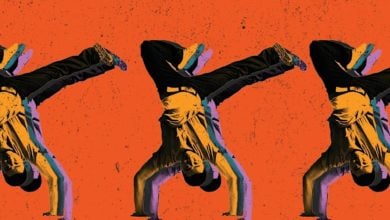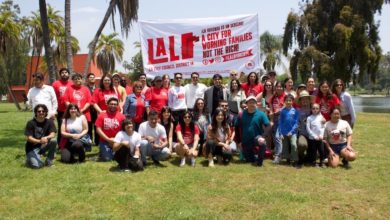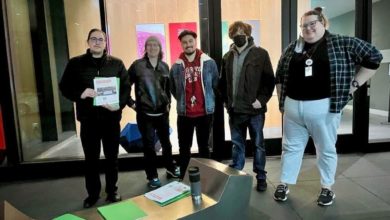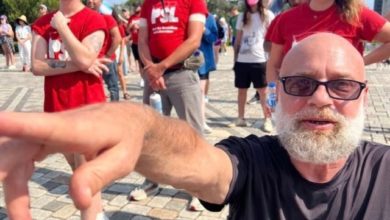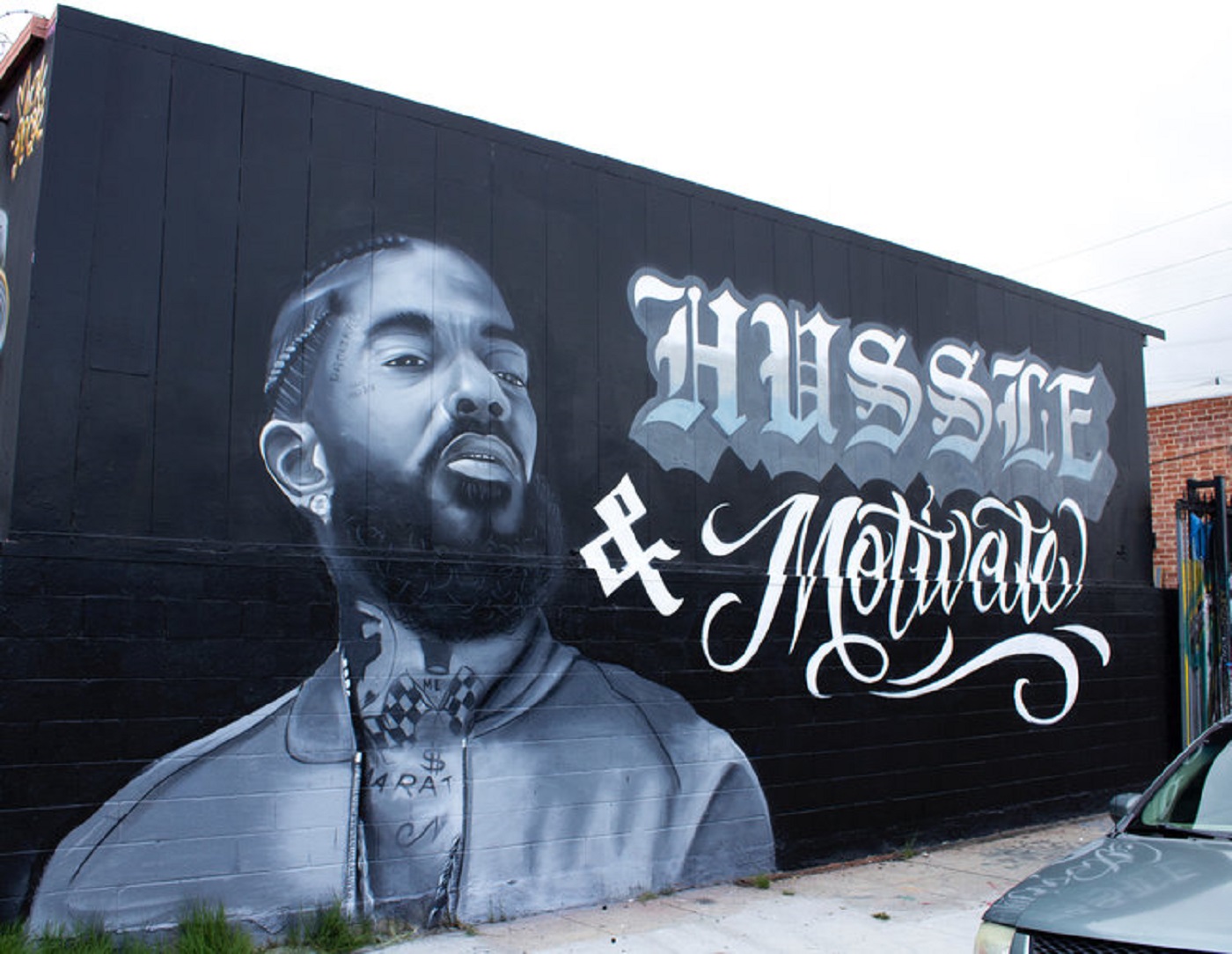
The following is based on a talk given by Marcus Bois Aubin at a PSL forum in New York City on April 5.
Hip Hop is a cultural force that is rooted in community building. We must remember that one of Hip Hop culture’s earliest mantras was: “Peace, unity, and having fun.” It was Hip Hop culture that kept the names of liberation figures like Malcolm X, Nelson Mandela, and Huey P. Newton alive in the Black American consciousness during the depth of the crack epidemic from the 1980s to early 1990s. Many revolutionaries of today started their journey of political consciousness through listening to rap music and learning about the foundations of Hip Hop culture.
We would like to honor and celebrate the life of the Eritrean-American entertainer, entrepreneur, and activist Ermias Joseph Asghedom, known as Nipsey Hussle, who was tragically gunned down March 31 at the age of 33. We honor him because of what he meant to the Crenshaw and south LA community where he was rooted, and to so many Black and Brown young people worldwide.
Crenshaw and south LA in the 1990s
Born in 1985, Nipsey came of age in a time and place — LA in the 90s — marked, like so many Black neighborhoods nationwide, by extreme poverty, mass incarceration, de-industrialization, racist police brutality, overcrowded schools and declining social services. The revolutionary mood and organizations of the 1960s and 1970s had largely been all destroyed. The drug epidemic was in full swing.
In this environment, where playing by the rules of the capitalist order appeared to offer nothing hopeful to a young man like Nipsey, he joined the Rollin 60s Neighborhood Crips. While we do not glorify such street organizations or minimize their crimes against the people, we do not scorn the oppressed young men and women who join them in such a social context. We understand that they are attracted by the community, collectivity, sense of power as well as economic livelihood that they seem to offer.
Biggest gang: the Los Angeles Police Department
What we do scorn is the hypocritical condemnation of these young men from the ruling class, who call them “super-predators” and “monsters,” who rob them of their humanity in the press, who design laws to strip them of their civil rights and lock them up for their whole lives in a prison system that has no intention of transforming them, but in fact entrenches them deeper into a life of crime. We know that the biggest murderers and drug dealers are in the Pentagon and Wall Street banks, and we know that the biggest gang in LA doesn’t go by the names Bloods or Crips — they go by the four letters L-A-P-D.
Nipsey was such an important figure because of his individual transformation and journey. Even years ago, before he became a big artist, there are videos where he speaks of colonialism, the robing of the Black community’s cultural work, and the need for organization to combat the heavily armed and centralized state. He tapped into that long existing tradition of Black independence and radical thought, and then devoted himself to use his platform to bring change to the music industry and community as an independent artist.
Promoted class unity
Nipsey was a business person who literally bought his block for community development. He developed economic opportunities like Vector 90, a co-working space for Black and Latino people interested in STEM fields to close the gap between Silicon Valley and South (formally known as South Central) LA. Nipsey’s next venture was going to be buying a building to make it 100 percent affordable housing- taking a step forward in combating homelessness in his community.
He used his fame and his background for multiple attempts to curtail street violence and the animosity between street organizations long opposed to one another. This wasn’t just a liberal framing of “stop the violence’” but tied to an analysis that Black people had a common interest and a common enemy. The song “F— Donald Trump,” put out during the election season, was one musical example of that — recorded alongside YG, a Blood, as well as several Mexican rappers, promoting class unity and militancy against white supremacy.
Nipsey was also evolving as an internationalist attempting to bring economic opportunities back to his homeland of Eritrea. Although he grew up with little connection to his father’s side, this was inspired by his desire to reconnect more with his African origins. His father organized and marched for Eritrean national liberation against apartheid and U.S. imperialism in the 70s.
It’s understandable that many have expressed feelings of outrage and demoralization that his alleged murderer was a member of his own gang “set.” There is, understandably so, pessimism about improving the hood when there are some people in those environments who may take part in the murder of the emerging leaders attempting to build these communities. But here in the Justice Center and PSL, we believe in revolutionary optimism. I would like to share some lessons learned from the legacy of Nipsey Hussle, and why we must reject such pessimism.
Lessons from Hussle’s legacy
Genuine change comes from genuine love from people from the community. It does not matter if they are college educated, a reformed criminal, activist or in-between. Anyone with a vision for a better tomorrow has the capacity to contribute to the movement, and to become a spark for radical economic and political change.
Once a person knows who they are and where they came from, this can become a spark for all sorts of individual and collective transformation. Nipsey’s knowledge of his heritage helped him liberate himself from the self-destructive life of drug dealing and gangbanging to developing programs to enhance his community.
People pushing for the liberation of their communities are not perfect and may harbor prejudices. Everyone living under this capitalist, white supremacist, and patriarchal society has contradictions. This should not discredit the work they have done for their community; that doesn’t “cancel” your legacy. If you’ve harmed others, you should still be held accountable for your actions. If an oppressed person who wants to make positive change and unite the poor holds bigoted views, it is the job of the movement to explain and show in practice why these views are an impediment to that unity; we know that the class struggle itself is the best teacher, and can quickly undo, in the matter of days, decades of bourgeois indoctrination.
Intercommunal violence doesn’t simply stop because you are famous and attempting to change the community. As long as there is systemic oppression and untreated trauma, there will be members of oppressed communities who will commit violence and acts of oppression against their own community. Hurt people will hurt people.
Nipsey Hussle’s most well-known brand was around the metaphor taken from the name of his 2010 mixtape – The Marathon. I think it’s appropriate that we think of revolution in the same way.
In an interview on the Grammy Awards red carpet last year, Nipsey was asked to complete the sentence “If I had a dream …” to which he replied “For our people to step into their greatness collectively.”
May we continue to fight to make his dream a reality.
Rest in Power Nip.


